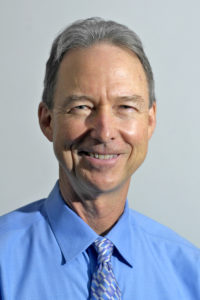By Randy Schultz, Sun Sentinel columnist
Almost all of South Florida supports Everglades restoration. West Palm Beach wants to sabotage it.
On Monday, Mayor Keith James held a news conference to support Senate Bill 2508 in the Florida Legislature. He then misrepresented the bill.
So let’s start with the truth.
As written, SB 2508 contained two especially bad provisions. One would essentially designate Lake Okeechobee as a reservoir for sugar farmers by keeping water levels artificially high. The other would hold hostage state money for a reservoir south of the lake.
The first provision matters because the state should consider the lake an environmental asset. It is the center of the Everglades water system. Higher levels harm grasses that sustain marine life.
The second provision matters because the reservoir will allow much more lake water to go south. That will reduce harmful discharges to the east and west coasts. The reservoir will filter water and send it to the Everglades.

Environmental groups and anyone not tied to the sugar industry criticized the content of SB 2508 and the timing. The sponsor, a Central Florida farmer, filed the bill halfway through the session. Senate President Wilton Simpson, R-Trilby, who’s running for agriculture commissioner, put it on the fast track.
After strong pushback, however, environmental groups secured an amended bill without those bad provisions. The Senate passed it.
Credit the next Senate President, Kathleen Passidomo. Her southwest Florida district suffers when high lake levels force the release of water to the Caloosahatchee River that empties into the Gulf of Mexico.
Yet as Everglades Foundation Executive Director Eric Eikenberg noted, those changes to SB 2508 are “written promises” at this point. The legislation affects the budget, so the Senate and House must agree on the bill. Nothing is final.
James held his news conference one day before the deadline to complete a budget for the Legislature to adjourn on time Friday. Negotiations were not complete by deadline for this column.
James wanted the Legislature to replace the better version of SB 2508 with the original, which Eikenberg said “had Sugar’s fingerprints all over it.” That’s because West Palm Beach and Big Sugar are aligned on this issue.
West Palm Beach is one of 12 cities in Florida that get water from above-ground sources, not underground wellfields. Lake Okeechobee provides about half of the city’s supply. What helps Big Sugar helps West Palm Beach.
The U.S. Army Corps of Engineers manages the lake. SB 2508 in its original form would have required the South Florida Water Management District to recommend that the Corps “not diminish the quantity of water available to existing legal users.”
Translation: Protect agriculture’s water supply. The first version also would have locked in that supply based on this year’s amount. Next year, new rules that don’t favor sugar growers will kick in.
James surely didn’t want to seem allied with some of the state’s largest polluters. But he cribbed from Big Sugar’s script.
SB 2508′s first version, James said, would “take the determination as to the level of Lake Okeechobee out of the hands of the bureaucrats. We don’t want people in Washington or Jacksonville determining what the level the lake should be.”
The Corps’ Florida office is in Jacksonville.
To the uninformed, James’ comments might have sounded sensible. Delray Beach City Commissioner Ryan Boylston, who attended the event, said “the mayor’s people” had asked him to attend in support of “home rule.”
But James’ comments were nothing but deception. It’s how the sugar industry works. Among those attending was the director of the South Florida Water Coalition. Using that bland title, the group fronts for the sugar industry.
The reservoir and the new plan for managing Lake Okeechobee will help Broward and Miami-Dade counties by providing more water for wellfields. They will help southeast and southwest Florida because less polluted lake water will pummel coastal estuaries. Added water will benefit Florida Bay, thus helping the Keys.
So West Palm Beach — and the Palm Beach County commissioners who share James’ sentiments — are outliers in southern Florida. Knowingly or not, those at Monday’s event served as props for polluters and against the many environmental and economic benefits of Everglades restoration.
The column was first published in the South Florida Sun Sentinel on Monday. Contact Randy Schultz at randy@boca.mag.
“The Invading Sea” is the opinion arm of the Florida Climate Reporting Network, a collaborative of news organizations across the state focusing on the threats posed by the warming climate.



